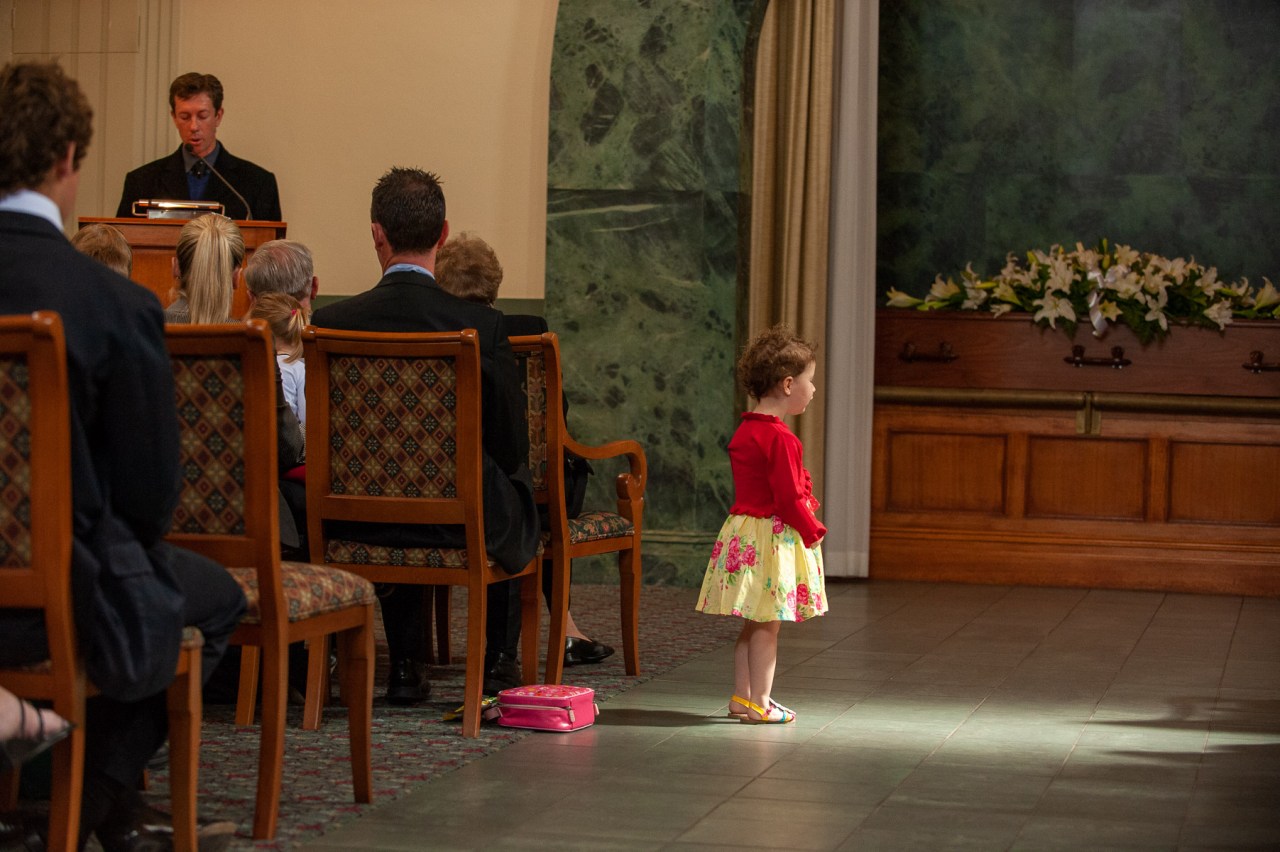Search this site
Photography Job You’ve Never Heard Of: Funeral Photographer
This article is part of our series on unusual and inspiring photography jobs. Today, we’re highlighting John Slaytor, aka The Funeral Photographer.

In his time as The Funeral Photographer, the Australian artist John Slaytor has documented grief, compassion and togetherness across cultures. “At a Kenyan funeral, two mourners sang in Kikuyu to the body,” he remembers. “At a Buddhist funeral, monks chanted for hours, giving the family time to reflect.
“At a Ukrainian funeral, a full choir sang at the graveside. At a Noongar funeral, male family members took turns with shovels to fill in the grave.
“At one wake, a man got out his accordion and started playing. It was even more moving because the musician had been taught to play the accordion fifty years earlier by the deceased, and this was his tribute.”
Slaytor is aware that the concept of a funeral photographer might be unfamiliar to some, but he says interest in the field is mounting. “The biggest misconception is that no one would want funeral photography,” he says. “The truth is that there is a growing demand.”

For the artist, starting The Funeral Photographer business in 2007 marked a change in the way he thought about mourning–and how our society copes with loss. For his clients, looking through the photographs–and the resulting physical book–provides the opportunity to revisit and reflect on their own experiences with grief and remember those who have died.

“Assisting with the design of the book is also a practical form of grief therapy,” Slaytor tells us. “Giving clients something to do, such as assembling tributes and selecting the images, allows them to honor the dead.
“In many ways, the books are an attempt to acknowledge mortality. I think our society’s sequestration of death ultimately negatively impacts on our joie de vivre, our spirit. I regard my books as a small attempt to counter the notion that death doesn’t exist, and in so doing, make us more human.”

Kindness and compassion also play a critical role in his work, and they can emerge from unexpected places. “One gesture really struck me,” the artist remembers. “I photographed the funeral of a 15-year-old girl who had been battling Ewing Sarcoma, a rare form of cancer. Whilst too young to die, she wasn’t too young to not want to comfort those she left behind.
“She personally addressed thirty tambourines to her school friends and wrote individual messages on each of them. At her funeral, the tambourines formed part of the service: her school friends shook them during a song dedicated to her.”
For Slaytor, discretion and objectivity are crucial in his line of work. “I don’t become emotionally overwhelmed since that would deny the family images,” he explains. “It would be like a nurse sitting at your bedside becoming distraught by your illness; the family needs that objectivity, just as the photographer (or nurse) needs to be professional.”

When his work does follow him home, as it sometimes does, he doesn’t deal with it alone. Having someone to talk to and touch base with keeps him going–as do the people he’s photographed. “I have photographed so many funerals now that when I see someone sobbing at the committal, I am mindful that later at the wake that same person may be smiling as they reminisce,” he tells me. Grief can be incredibly lonely, but for this photographer, strength and hope can be found in connecting with others.
Slaytor writes articles about his process for his ongoing blog. Read them here.